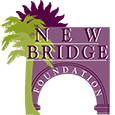There is a strong link between mental health and substance use disorders. While it cannot be said that one directly causes the other, the fact is that they frequently occur together and feed off of one another. Co-occurring disorder treatment refers to the practice of simultaneously treating the two. It is common for individuals with mental health disorders to seek symptom relief by using drugs or alcohol. It is also common for individuals suffering from addiction to develop mental health disorders, including depression and anxiety. No matter which occurs as the primary issue, a dual diagnosis treatment center offers the best chance for long-term recovery from both.
With over 50 years of experience in the field, New Bridge Foundation®® is the premier choice for dual diagnosis treatment in Northern California. Our non-profit addiction treatment center is in a private location but conveniently located and easily accessible. We have been named one of America’s “Best Addiction Treatment Centers” for the past four years, per a survey conducted by Newsweek Magazine, and we offer an array of affordable treatment options.
Reach out to our team at 866.772.8491 to learn more about our dual diagnosis treatment program in Berkeley.
Understanding Co-Occurring Disorders
Co-occurring disorders, also known as dual diagnosis, is a term used when a person struggles with both a mental health concern and a substance use disorder. This can encompass a wide range of combinations, including depression and alcoholism, anxiety and opioid addiction, or schizophrenia and cannabis use, to name a few. The relationship between these two types of disorders is complex, as they often feed off each other, creating a cycle that’s hard to break without professional help.
The development of co-occurring disorders often arises from an attempt to manage the discomfort or distress associated with a mental health problem. Individuals may turn to drugs or alcohol as a form of self-medication, hoping to alleviate their symptoms. On the other hand, prolonged substance use can also lead to mental health issues. Drugs and alcohol can disrupt brain chemistry, leading to changes in mood, behavior, and cognition, which can culminate in the onset of a mental health disorder.
Signs You Would Benefit from Dual Diagnosis Treatment
Understanding the signs that you or a loved one may benefit from dual diagnosis treatment is crucial in making the decision to seek help. Here are some signals to look out for:
- Increased tolerance and dependence – An increased need for substances to achieve the desired effect or experiencing withdrawal symptoms without them can be a clear sign of a co-occurring disorder.
- Neglecting responsibilities – If substance use begins to interfere with daily activities and responsibilities, this might be a pointer to the need for dual diagnosis treatment.
- Difficulty in maintaining relationships – If relationships start to strain due to substance use or mental health symptoms, it could be time to consider treatment.
- Ignoring risks – Engaging in risky behavior, especially while under the influence, is a common sign.
- Mental health fluctuations – Swift changes in mood, energy, or sleeping patterns and experiencing intense feelings of sadness, hopelessness, or anxiety should not be ignored.
- Experiencing legal troubles – If substance use has led to legal issues, it’s a clear indicator that help is needed.
If you’re experiencing any of these signs, dual diagnosis treatment centers can help.
The Benefits of Our Dual Diagnosis Treatment Center in Northern California
Dual diagnosis treatment is a comprehensive, integrated approach to treatment that addresses both mental health concerns and substance use concurrently. It goes beyond treating individual symptoms, focusing instead on understanding and addressing the root causes and interconnections between both disorders. By treating both conditions simultaneously, dual diagnosis treatment provides the best opportunity for individuals to achieve stable mental health and long-lasting recovery.
Our integrated approach to dual diagnosis treatment streamlines your recovery and helps explain how your co-occurring disorders impact each other and your overall functioning. At New Bridge Foundation®, you will learn coping and life skills to carry with you beyond counseling to maintain long-term recovery. Dual diagnosis treatment at our center can include:
- Individual and group counseling
- Family counseling
- Cognitive-behavioral therapy
- Holistic care for the body, mind, and spirit
- Co-occurring disorder education
- Medication management
- Relapse prevention planning
- Community and peer support
- Free aftercare for life
Experts agree that individuals suffering from co-occurring disorders should receive treatment from providers who are adept at treating both mental health and substance use disorders. The multidisciplinary treatment at New Bridge Foundation®® includes physicians, psychiatrists, mental health practitioners, and certified drug and alcohol counselors. Many of our treatment team members are in recovery themselves, so they are uniquely qualified to understand the needs of our clients.
Discover Dual Diagnosis Treatment at New Bridge Foundation®®
Untreated co-occurring disorders result in an overall decline in one’s physical and psychological well-being. Though effective treatment is easily accessible in Northern California, only a small percentage of individuals receive the comprehensive, integrated treatment they need and deserve. New Bridge Foundation® is here to help.
If you or a loved one suffers from co-occurring disorders, you are not alone. Begin your recovery journey today at New Bridge Foundation®. Reach out online or call 866.772.8491 today to get started.







